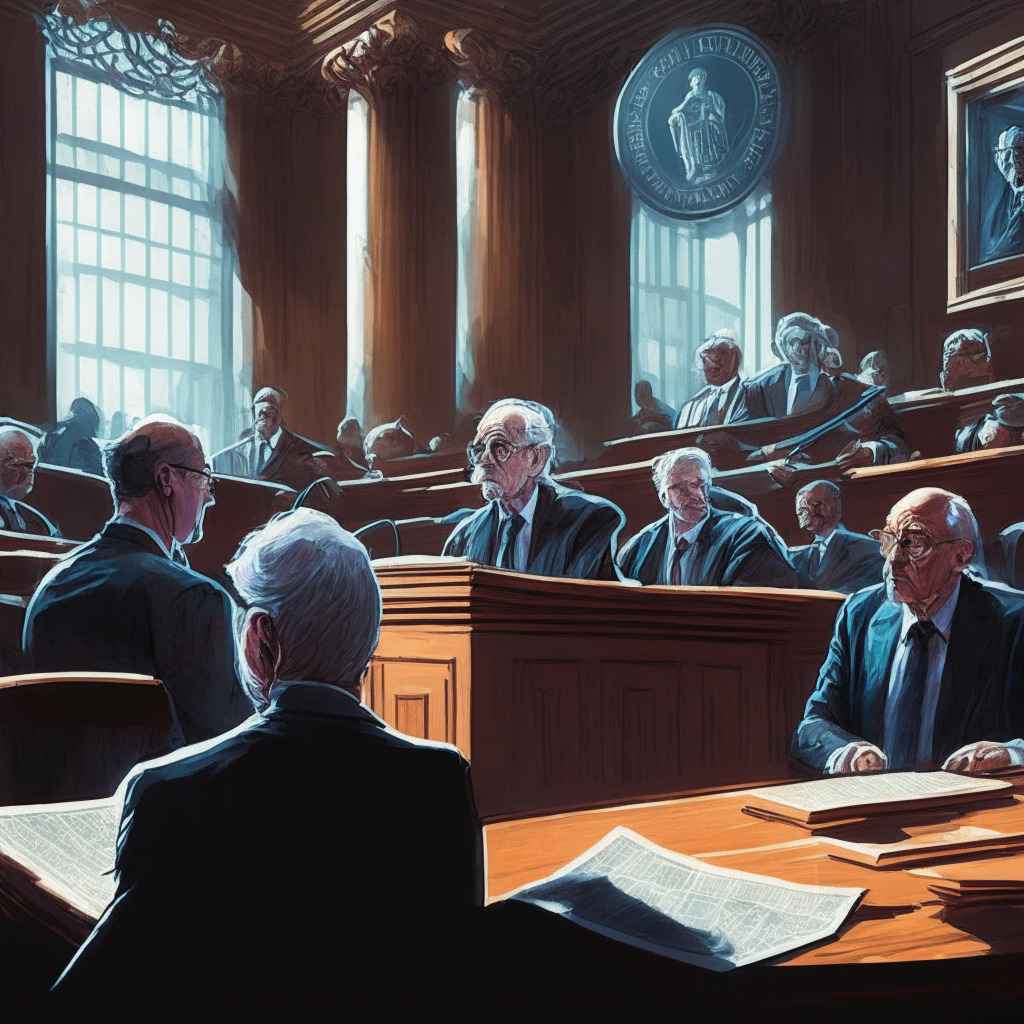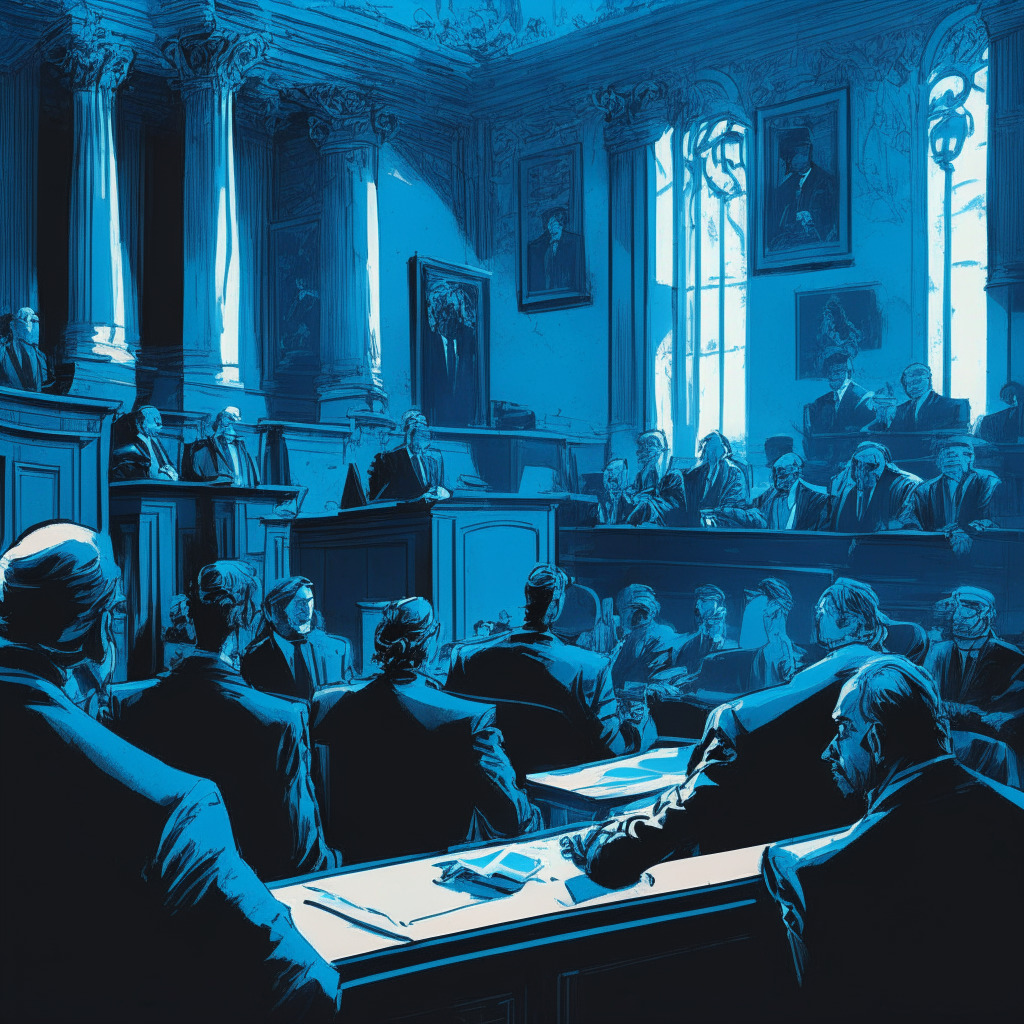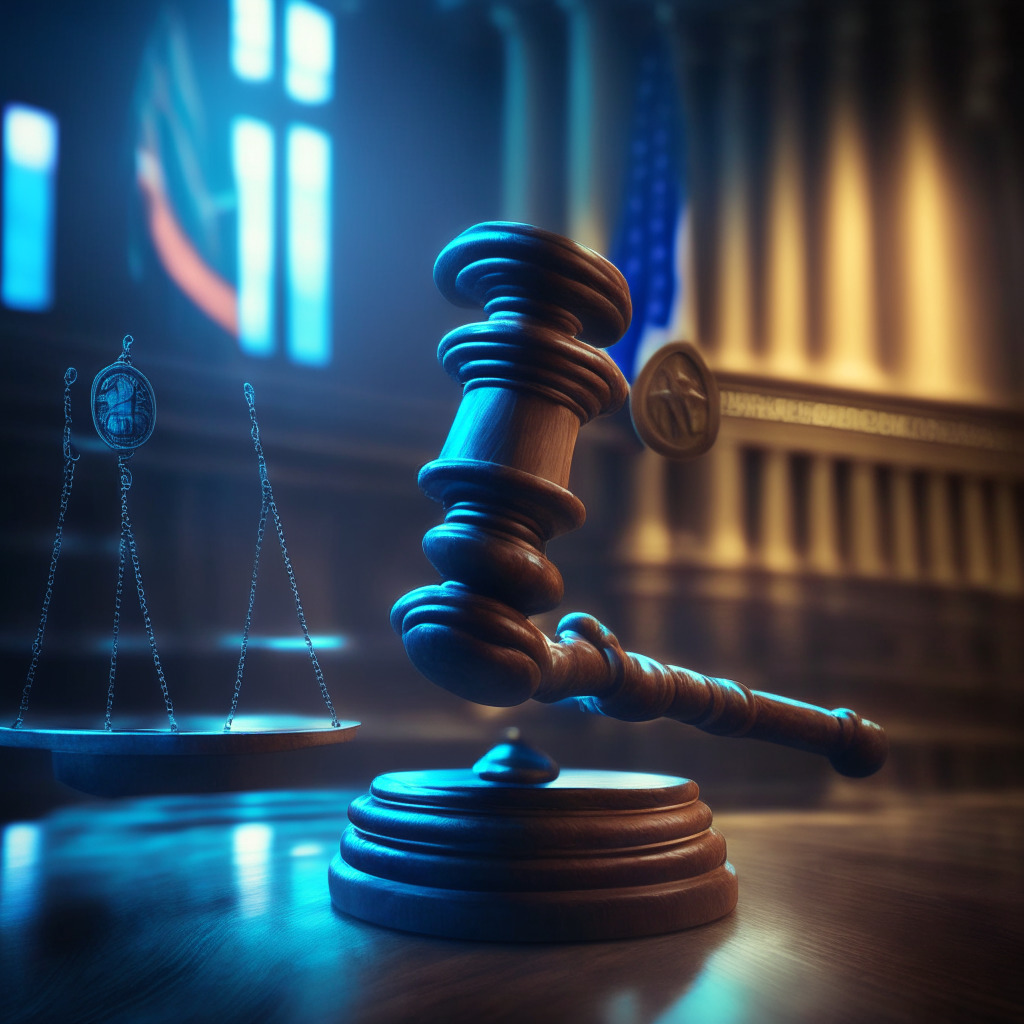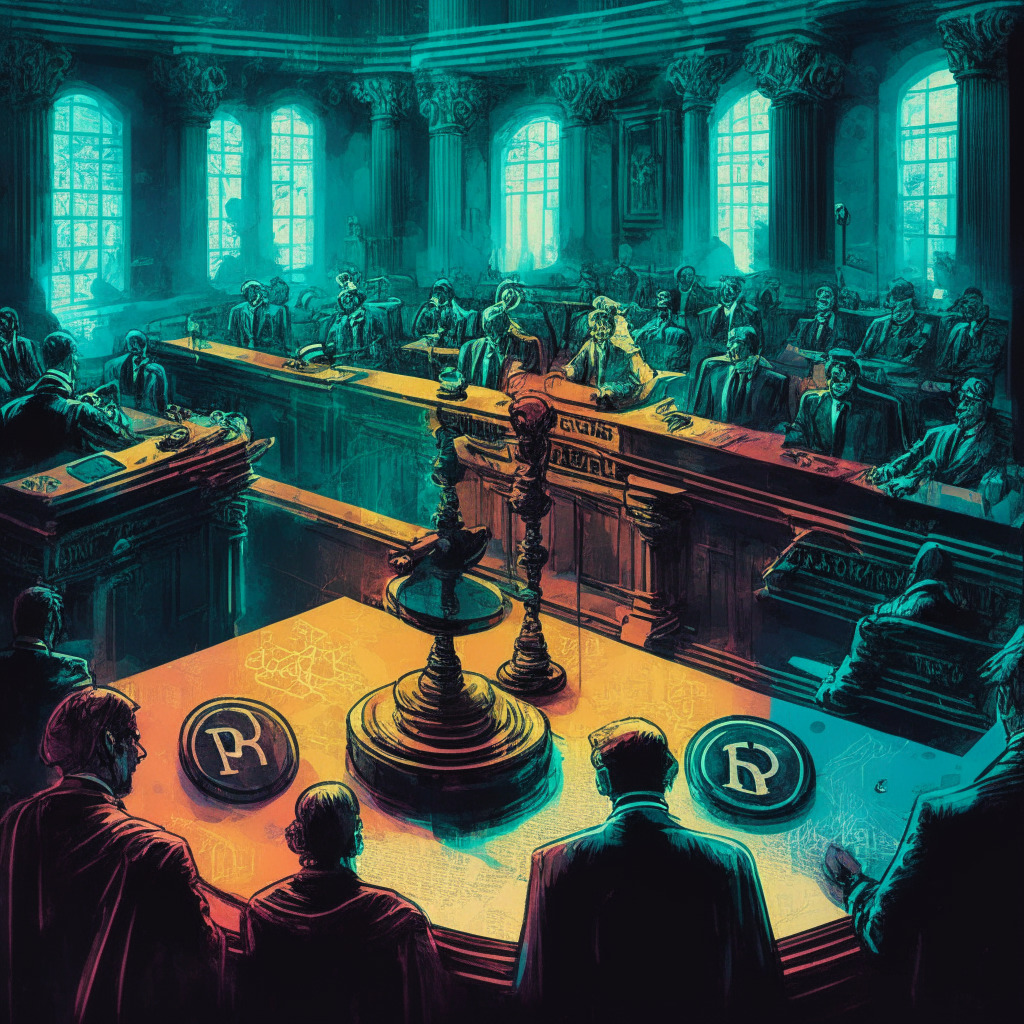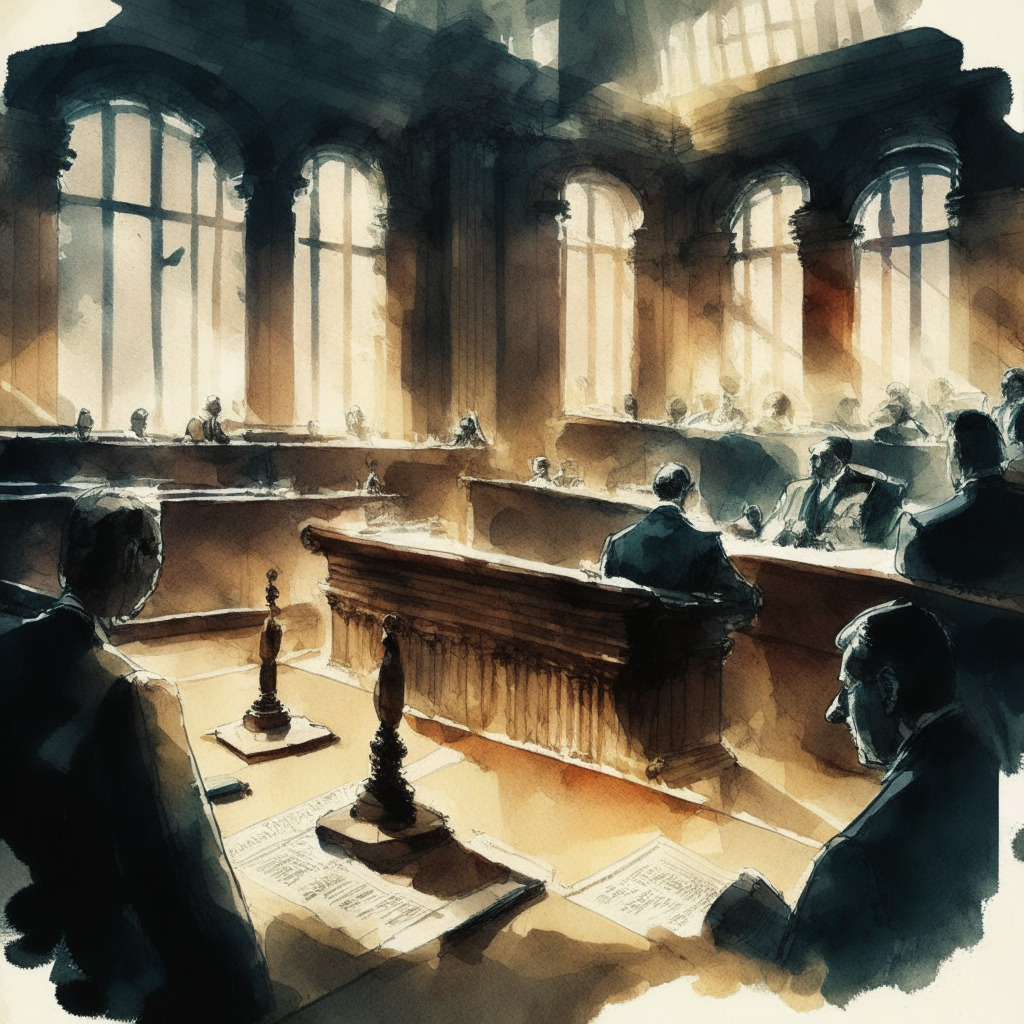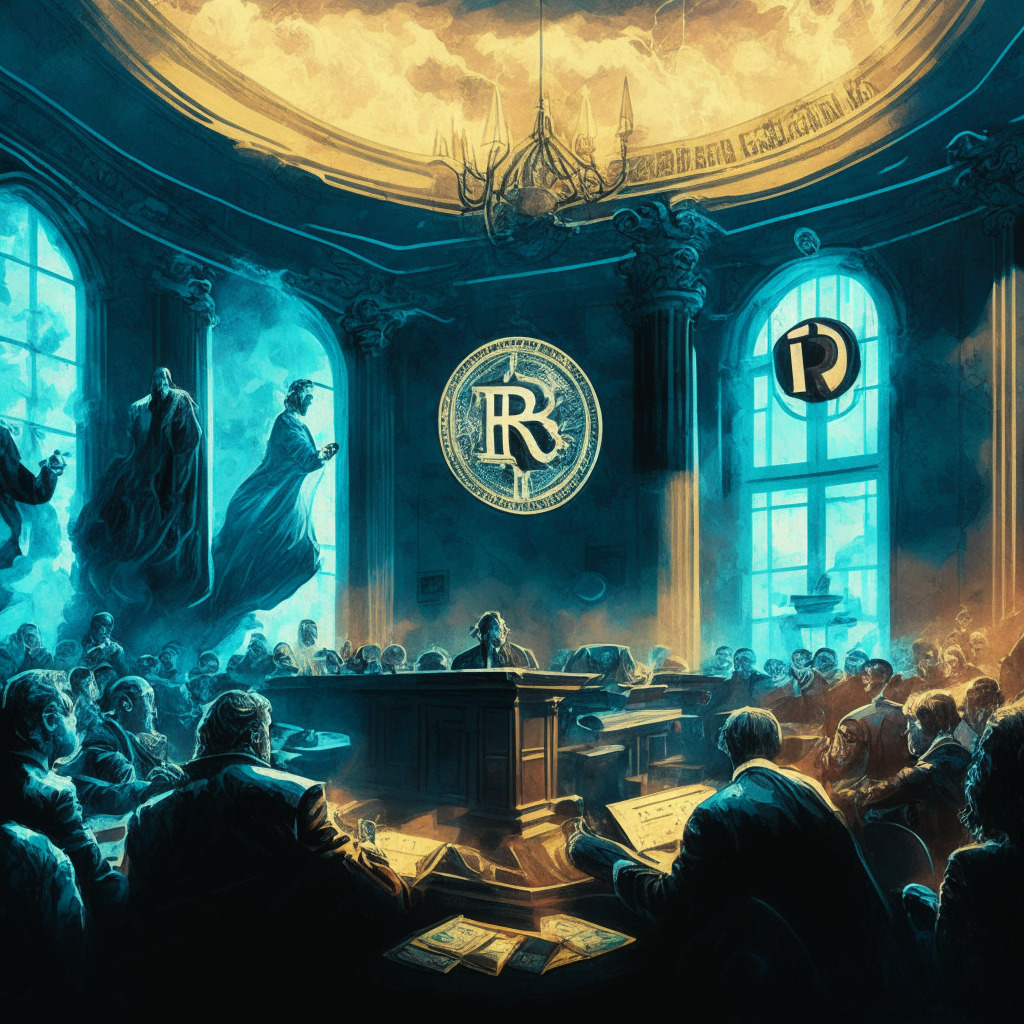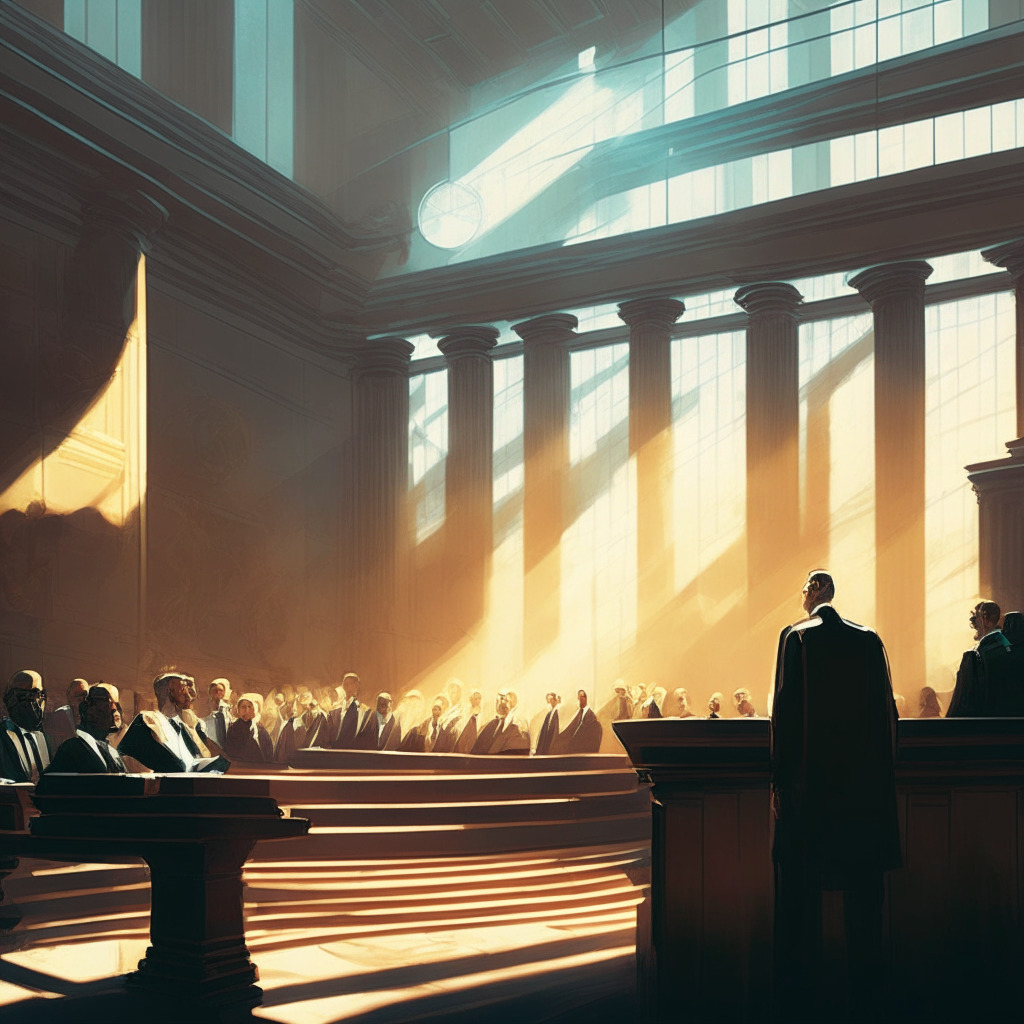“After facing a hefty penalty from the SEC, LBRY gains support from renowned attorney John Deaton for their appeal case. Despite setbacks, there’s industry optimism after recent court victories by Ripple and Grayscale against the SEC. Cryptocurrency stakeholders dispute the SEC’s decision due to its impact on the industry.”
Search Results for: John Deaton
The XRP Lawyer vs. FTX CEO Showdown: Debating Accountability and Trust in Cryptocurrency Exchanges
“John Deaton, a prominent XRP lawyer, criticized sympathizers of former FTX CEO Sam Bankman-Fried (SBF) amid speculation of his possible fraud charges. This dispute poses a significant question for crypto enthusiasts: Can crypto exchanges be trusted in the wake of FTX’s bankruptcy and alleged frauds?”
Legal Battlegrounds of Crypto: Navigating the Regulatory Hurdles and High-Stakes Lawsuits
Heavyweight attorney, John Deaton, known for representing XRP token holders against the SEC, has emerged in the LBRY lawsuit as a friend of the court. This follows the SEC initiating legal proceedings against LBRY for unlawfully selling LBC tokens without legal registration. Ongoing legal scrutiny suggests a future with regulatory mechanisms central to the crypto universe’s existence and operational integrity.
The Future of XRP Amidst Possible SEC Appeal: Threat or Opportunity?
Recent discussions about a possible U.S. SEC appeal against a ruling favoring XRP holders have caused concerns among cryptocurrency enthusiasts. Attorney John Deaton allays fears, indicating the SEC appeal might not significantly threaten XRP holders. Despite potential appeal taking two years, Deaton remains optimistic about the win’s significance for XRP and Ripple.
Ripple Vs SEC: Debating the Potential Outcomes and Impact of a Possible Appeal
Following Ripple’s lawsuit with the US SEC, discussions regarding a potential appeal have arisen. Legal expert John Deaton suggests it’s unlikely an appeal by the SEC will be approved by Judge Torres, due to her adherence to the Howey factors. However, both parties have a right to request an appeal. Deaton’s skepticism extends to Ripple’s reaction to an SEC appeal, suggesting it may not respond favorably. The lawsuit’s outcome has potential significant impact on subsequent SEC cases against other crypto exchanges.
XRP Lawsuit, Ripple’s Legal Battle and the Significance of Amicus Briefs in Crypto Regulations
The XRP lawsuit filed by the SEC against Ripple Labs impacts prices and businesses, while XRP holders’ lawyer, John Deaton, invests in Amicus Curiae SpendTheBits. This highlights the risks, regulations, and complexities in the cryptocurrency market, emphasizing the need for trust and integrity in blockchain development.
SEC vs XRP: Crypto Classification Debate and the Implications for Blockchain’s Future
Pro-XRP lawyer John Deaton argues that the SEC cannot justify secondary XRP sales as securities, citing existing case law and the Howey Test. He questions SEC Chair Gary Gensler’s approach towards crypto regulation, raising skepticism around the current regulatory environment. The Ripple vs SEC case outcome could significantly impact the future of digital assets.
Unveiling the XRP Lawsuit’s Secrets: Impact on Crypto’s Future and Judicial Impartiality Debate
The recent disclosure of Ethereum founder Vitalik Buterin’s involvement in ex-SEC director Hinman’s controversial speech has raised concerns about potential biases in the XRP lawsuit. Despite these speculations, attorney John Deaton vouched for District Judge Analisa Torres’ impartiality. The situation stresses the importance of transparency and unbiased decision-making in addressing regulatory concerns surrounding cryptocurrencies.
Unsealed Hinman Documents: Ripple’s Legal Battle and Future of Crypto Regulations
The Hinman documents, recently unsealed, offer valuable insights into the SEC’s discussions surrounding the categorization of ETH as a security. Crypto lawyer John Deaton emphasizes that these documents may provide support for Ripple, Coinbase, and other entities facing regulatory scrutiny and potentially influence congressional discussions on regulating digital assets.
SEC Allegations Spark Class-Action Debate: Crypto Users vs Exchanges and Regulators
Attorney John Deaton, representing 75,000 XRP token holders, alleges that the SEC isn’t considering the best interests of Coinbase and Binance users. He encourages a class of customers to participate in the lawsuits and potentially attain amicus status, allowing their voices to be heard.
Connecting the Dots: Crypto Lawsuits, Politics, and the Race for CBDC Dominance
John Deaton, a lawyer representing XRP token holders, suggests political motives could influence legal actions against major crypto exchanges like Binance and Coinbase. He proposes connections between Senator Elizabeth Warren, SEC Chair Gary Gensler, and a push for launching central bank digital currencies (CBDCs) as potential explanations for aggressive enforcement.
XRP Lawsuit Updates: Estimated Victory Odds, Decision Timeline, and Post-Ruling Predictions
Pro-XRP lawyer John Deaton predicts a 25% chance of an outright win for Ripple in the SEC lawsuit, a 50% chance of a “splitting the baby” ruling, and under 3% chance of SEC’s outright victory. Deaton expects a final decision before September 30 and speculates Ripple could IPO following the lawsuit conclusion.
Crypto Lawyer’s Phone Hack: Lessons in Cybersecurity and Trust for the Blockchain Community
Pro-XRP lawyer John Deaton’s phone was hacked, resulting in unauthorized promotion of the LAW token on Twitter. This incident highlights the risks of false information dissemination in the crypto market and the importance of cybersecurity and collaboration to protect investors.
Hacking of Crypto Influencer’s Account: Lessons on Security, Misinformation, and Market Integrity
Attorney John Deaton’s Twitter account was hacked, promoting an obscure cryptocurrency called $LAW token. This incident highlights the potential danger of misinformation and emphasizes the importance of skepticism, fact-checking, and vigilance within the crypto community to safeguard its reputation and integrity.
Ripple Vs SEC Lawsuit: Summary Judgement Predictions and Implications for Crypto Future
The Ripple Vs SEC lawsuit continues to captivate the crypto community, with lawyer John Deaton predicting a Summary Judgement by the end of September 2023. The case holds significant regulatory implications and potential impact on the future of cryptocurrencies in the United States.
Hinman Documents Delay Impact on Ripple-SEC Lawsuit: What to Expect Next
Attorney John Deaton shared his opinion on the delay in public filing of Hinman documents in Ripple Labs vs. SEC case, suggesting that settlements would have been reached if documents played a significant role. Ripple and SEC requested a joint extension for the moratorium, citing voluminous documents in question. The case’s outcome is expected to set precedent for the digital currency ecosystem.
Ripple’s Conundrum: SEC Settlement vs Costly Legal Battle – Weighing the Outcomes
Attorney John Deaton suggests that Ripple may benefit from settling with the US SEC, as the costs of a legal battle could impact the company’s long-term goals. Ripple faces challenges in building trust with regulators, clients, and business partners, and a settlement could help unlock new opportunities.
The Fall of FTX’s Sam Bankman-Fried: A Cautionary Tale or Web3 Symbol’s Downfall?
Cardano’s Charles Hoskinson compared FTX’s co-founder, Sam Bankman-Fried, to Ponzi scheme operator Bernie Madoff, criticizing his lenient media treatment. Following the FTX crash, allegations of misappropriation of user assets and extravagant purchases surfaced, leading to calls for stringent regulation in the crypto industry.
The Evolutionary Leap: Polygon 2.0 and the Ripple Labs Expansion, Amidst Legalities and Ethical Quandaries in Crypto World
Polygon Labs announces its journey towards Polygon 2.0, aiming to boost the Ethereum blockspace and promise limitless scalability. While Ripple Labs extends its Liquidity Hub, offering improved customer experience, questions arise around potential legislative challenges. Developments in crypto legalities and ethical dilemmas in blockchain transactions continue to make the space more dynamic.
Navigating the Future: Ripple vs SEC and the Implications on Crypto Regulation
“The ongoing Ripple versus SEC lawsuit opens up debates about future cryptocurrency regulations. Recent developments suggest that if token sales through exchanges are found not to infringe U.S securities laws, it could limit the SEC’s appeal scope and drive towards settlement, significantly influencing the future of crypto operations and security laws.”
Grayscale’s Victory: A Mixed Blessing for the Crypto Industry? Unraveling the Consequences
The District of Columbia Circuit Court of Appeals overturned the SEC’s rejection of Grayscale Investments’ Bitcoin spot ETF application, a victory that many crypto enthusiasts celebrated. However, this decision could invite substantial ‘Big Money’ to the crypto table, introduce new challenges, and potentially incite backlash from SEC. It’s suggested to stay prepared for the uncertain future of crypto regulations.
Bitcoin Velocity Dips: Stagnation or Whales Playing it Cool? Ripple SEs Legal Distractions
Bitcoin’s velocity, reflecting how swiftly BTC moves around the network, has hit a slowing point, indicating a stagnant Bitcoin supply at around $26,000. This could suggest that large Bitcoin holders maintain their holdings rather than selling, sparking a debate in the market. The slowdown also has implications for other cryptocurrencies, particularly Ripple Labs, currently under the scrutiny of the Security and Exchange Commission.
Ripple vs SEC: The Unfolding Drama and Its Implications on Crypto Regulation
“The Ripple case underlines the complexity of cryptocurrency regulations and the uncertainties prevalent due to its rapidly evolving landscape. This regulatory maze demands transparent regulations, fair oversight, and a consensus. The industry craves clear guidelines; until then, instances like Ripple’s will continue illuminating the nuances of cryptocurrency regulations, fostering legislative paths.”
Navigating the BTC-Ripple Turbulence: Analyzing the Cryptosphere’s Current Legal Drama and Market Bear Pressure
The article discusses the ongoing market dynamics of Bitcoin (BTC), its anticipated trajectory, and adverse market situations. Detailing the recent SEC appeal against Ripple Labs, it explores how this development could influence BTC’s future moves and market trends.
New Hampshire Court Ruling: A Potential Marker or Stumbling Block for Future Crypto Sales?
The recent ruling by Judge Paul Barbadoro in the SEC vs LBRY case has potentially impacted the course of future crypto sales proceedings. The decision highlights the ambiguity surrounding secondary market sales of cryptocurrencies, with the Judge not taking a clear stance on whether registration requirements apply. This event underscores the uncertainty of the regulatory landscape for cryptocurrencies, emphasizing the need for enhanced understanding and caution among users and investors.
Ripple Lawsuit Update: Uncertainty Looms as SEC Case Drags and Lawyers Withdraw
In the ongoing SEC lawsuit against Ripple, lawyer withdrawals and the delay in delivering the Summary Judgment have caused uncertainty among XRP token holders. Despite these developments, some believe Ripple may eventually triumph in the case.
SEC vs. Ripple: Unraveling the Complexities of XRP Lawsuit and Its Impact on the Crypto World
The ongoing legal battle between the SEC and Ripple leaves the crypto community awaiting clarity on digital asset regulations. As the lawsuit stretches beyond seven months, understanding and staying updated on regulatory developments is crucial for making informed investment decisions in the crypto industry.
SEC vs. Ripple Lawsuit: Could XRP’s Classification Set a Crypto Regulation Precedent?
As the SEC and Ripple lawsuit approaches Summary Judgment, the debate on XRP’s classification as a “Security” intensifies. The outcome could set a major precedent for future cases, highlighting the need for regulatory clarity in fostering innovation and providing security for cryptocurrency investors.
Major Financial Firms Enter Crypto Market: Boon or Bane for Decentralization and Innovation?
The crypto market experiences a long-term ripple effect as major financial firms like BlackRock, Invesco, Fidelity Investments, WisdomTree, and Valkyrie Funds enter the digital assets market. Skeptics worry their involvement could increase regulation, potentially hindering innovation and the decentralized spirit valued in the crypto community.
SEC vs Ripple Lawsuit: Unpredictable Outcome and Divergent Crypto Community Opinions
The Ripple vs SEC lawsuit reveals contrasting opinions within the crypto community, reflecting the unpredictable outcome of the case. As the verdict approaches, pro- and anti-XRP factions express their views, challenging investors navigating current market conditions. Conduct thorough research before committing to cryptocurrency investments.
Navigating Murky Crypto Regulation: Analyzing SEC, Ripple, and the Safe Harbor Debate
The ongoing SEC vs Ripple case highlights the need for regulatory clarity in the cryptocurrency space. The “Safe Harbor Proposal” and Ethereum’s “safe harbor” designation have stirred debates about fair regulations, fostering innovation, and protecting investors from potential hazards.
Gensler’s SEC Actions: Bias Towards Wall Street or Helping Crypto Growth?
Macro guru Raoul Pal suggests SEC Chair Gary Gensler’s selective bias towards Wall Street companies harms the crypto market. While Gensler’s approach appears negative, his aim may be to give incumbents market share before full-scale regulation, fostering crypto growth.






